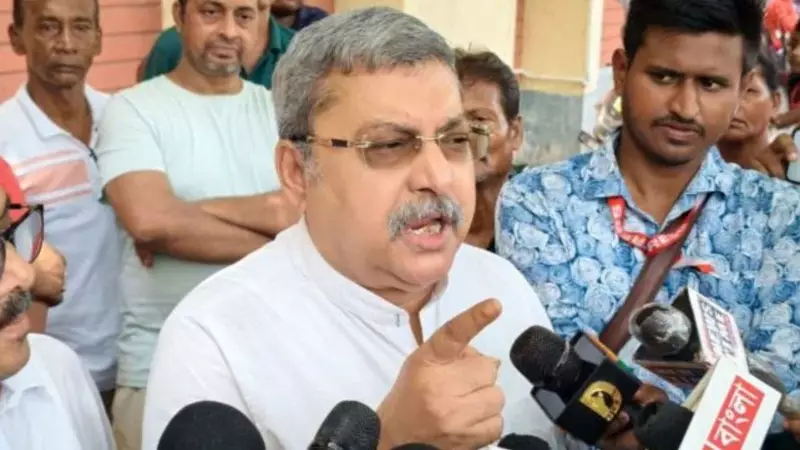
West Bengal's political landscape has been rocked by a dramatic confrontation between Governor C V Ananda Bose and Trinamool Congress MP Kalyan Banerjee, culminating in an unprecedented invitation for public scrutiny of the Raj Bhavan premises.
Governor's Electoral Remarks Spark Fiery Response
The controversy erupted on Saturday when Governor Ananda Bose made strong statements about the need for electoral reforms in West Bengal. Speaking at Raj Bhavan, the governor emphasized that elections in the state should be based on the ballot, not the bullet, calling this transition urgently required.
Governor Bose identified two critical issues plaguing West Bengal's electoral process: widespread violence and systemic corruption. He asserted that any form of violence must be curbed with an iron hand and that eliminating corruption was essential for ensuring free and fair elections.
The governor also defended the ongoing Special Intensive Revision (SIR) of electoral rolls, describing it as a necessary clean-up exercise. Citing Bihar's recent election experience, Bose expressed confidence that the people of Bengal would accept this electoral purification process.
TMC MP's Explosive Allegations
Trinamool Congress MP Kalyan Banerjee, known for his controversial statements, launched a fierce counterattack against the governor's remarks. In an explosive allegation made on Saturday, Banerjee accused Governor Bose of actively sheltering BJP criminals within Raj Bhavan.
The TMP MP made startling claims that the governor was providing offenders with guns and bombs and directing them to attack Trinamool Congress workers. Banerjee didn't mince words, labeling Bose as an incompetent governor and a BJP-servant governor, while asserting that nothing good would happen in West Bengal as long as he remained in office.
Raj Bhavan's Unprecedented Response
The Governor's office issued a strong rebuttal late on Saturday, taking the extraordinary step of inviting Banerjee to personally verify his allegations. In an official statement, Raj Bhavan announced that its gates would be opened from 5 am on Sunday for the TMC MP, accompanied by up to 100 members of civil society and media representatives.
The Raj Bhavan statement presented a clear challenge to Banerjee: verify if any arms and ammunition are stocked as alleged. The statement further warned that if the allegations proved incorrect, the MP would face two options - publicly apologize to the people of Bengal or face prosecution for hate speech.
Expressing serious security concerns, the governor's office called for an immediate inquiry into the Kolkata police personnel guarding the premises. The statement questioned how, as alleged by the MP, security personnel had permitted arms and ammunition to be brought into Raj Bhavan, despite the governor enjoying Z-plus category security.
Despite security advisors recommending evacuation to a safe location until the inquiry's completion, Governor Bose maintained his position with the determined statement: I will be in Raj Bhavan, come what may.
Political Ramifications and Ongoing Developments
The Raj Bhavan statement confirmed that the matter would be escalated to the Speaker of the Lok Sabha for a formal inquiry. This development adds another layer to the already tense political situation in West Bengal.
The timing of this confrontation is particularly significant as Governor Bose was scheduled to visit Siliguri on Sunday to grace the closing ceremony of Rozgar Mela 2.0, organized by the Darjeeling Welfare Society.
In a related development, the TMC accepted Kalyan Banerjee's resignation as the party's chief whip in the Lok Sabha on Tuesday, though the resignation's connection to this specific controversy remains unclear.
This heated exchange between constitutional authorities and elected representatives is fueling political turbulence in West Bengal, raising questions about institutional boundaries and the escalating tensions between the state government and central representatives.






